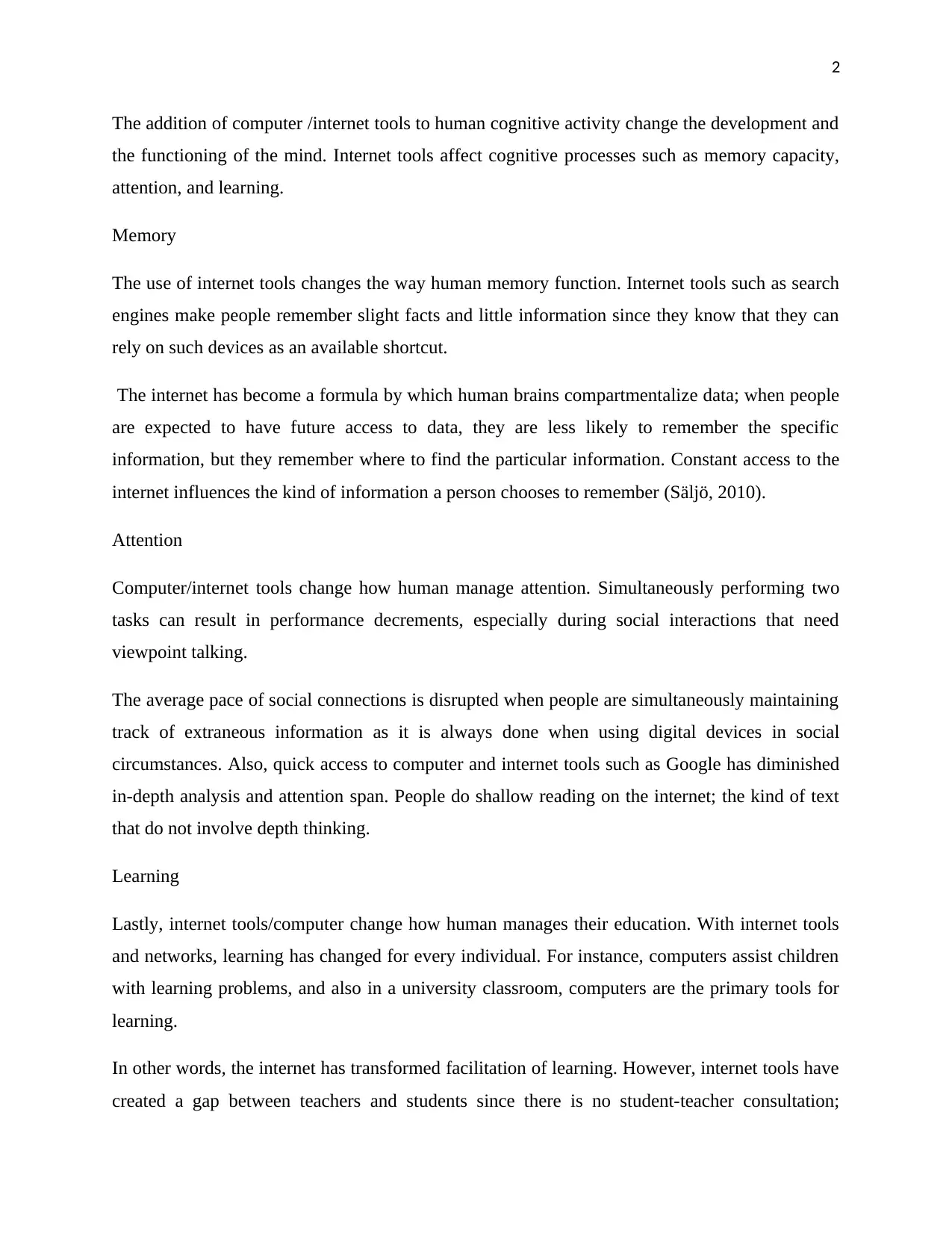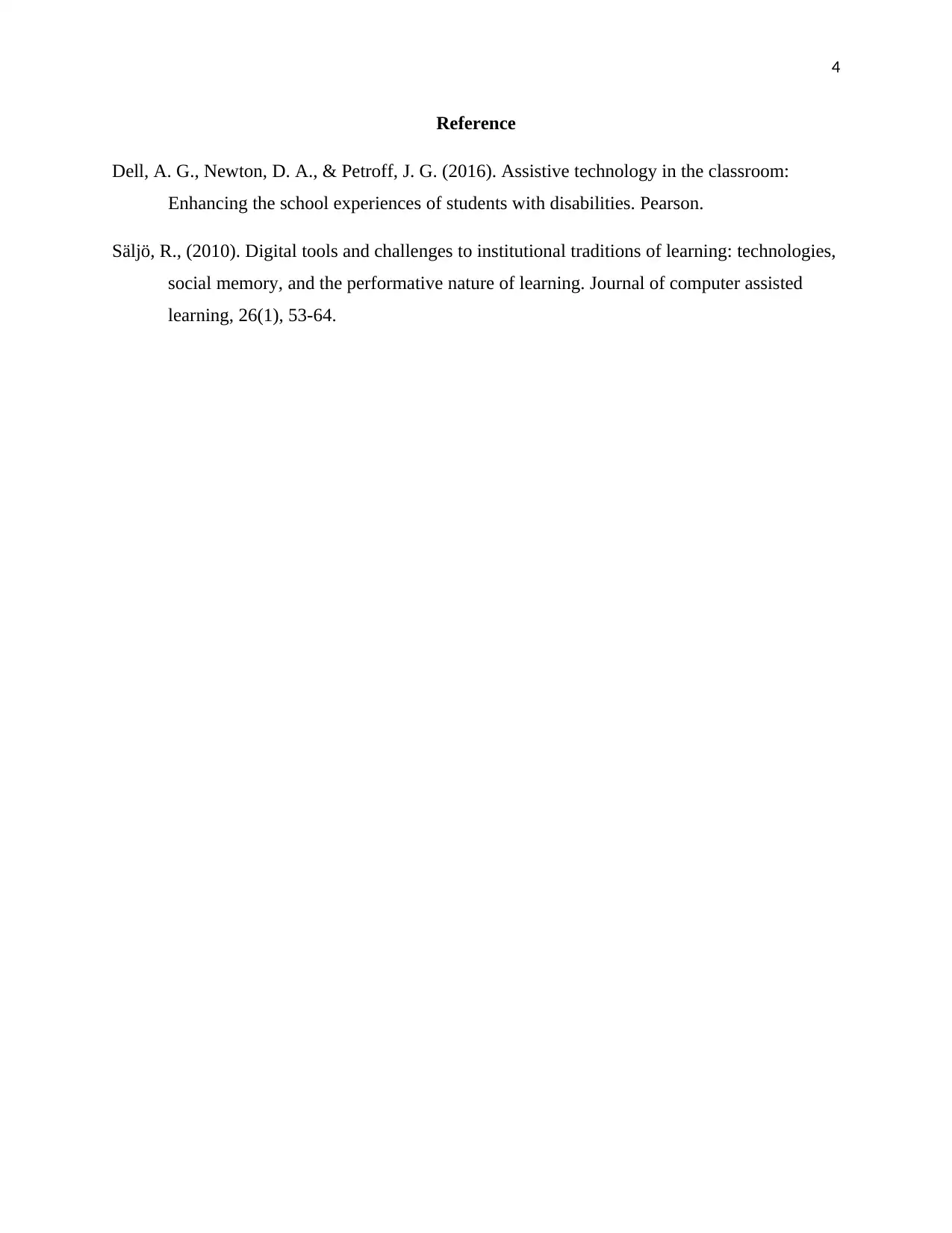Examining the Impact of Computer/Internet Tools on Human Cognition
VerifiedAdded on 2022/11/25
|4
|442
|51
Essay
AI Summary
This essay examines the impact of computer and internet tools on human cognitive activity, focusing on how these tools alter the development and functioning of the mind. It explores specific cognitive processes such as memory, attention, and learning. The essay argues that internet tools, like search engines, influence memory by providing readily available information, changing what individuals choose to remember. Additionally, it discusses how internet tools affect attention spans and the ability to engage in in-depth analysis, as well as how the internet has transformed learning methods, creating new dynamics between students and educators. The author references key academic works to support these claims, providing a comprehensive analysis of the cognitive changes brought about by the integration of internet tools into daily life.
1 out of 4





![[object Object]](/_next/static/media/star-bottom.7253800d.svg)